The Economics of Organized Play
If there's one constant in Magic, it's that people like to complain. They complain about lots of things, but one of the most frequent is money. Players think that entry fees are too high, and blame tournament organizers and judges for charging too much. Judges think they're not getting paid enough, and blame players and tournament organizers for not paying enough. Tournament organizers complain that their margins are too low, and blame players and judges for both things. Judge Academy and Wizards of the Coast don't complain about anything, and get blamed by all three groups for everything.
In keeping with that noble tradition, I'd like to complain about this. The economics of Magic events kinda suck for a lot of reasons that aren't really any individual's fault, and I'd like it if people had a little more understanding and empathy for those in other roles.A quick disclaimer that much of this information cannot be confirmed due to various NDAs enforced by Wizards, Judge Academy, and the various large tournament organizers, so these are my best guesses based on publicly available information and extrapolation. A few of the details may be wrong, but the gist should still be correct.
How do large tournaments actually work?
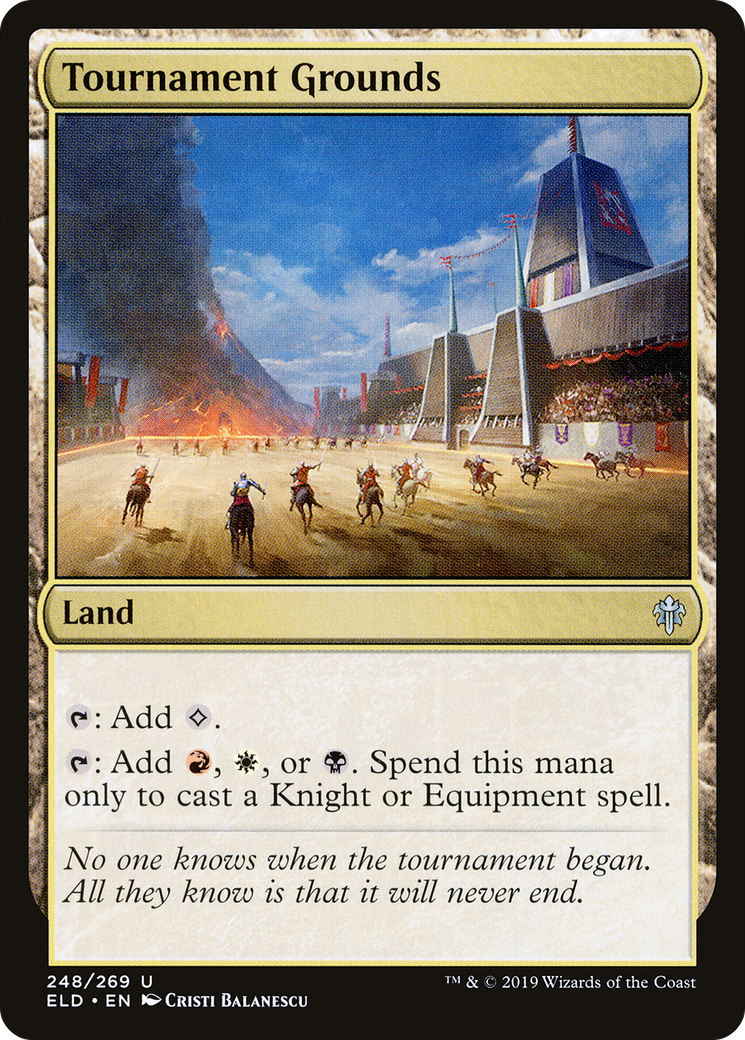
First, there's the venue. Convention centers are shy about publishing exhibition hall prices, but a typical Grand Prix hall might run anywhere from $5,000 to $50,000 per day.If you've ever wondered why Magic events tend to occur on the worst possible dates, such as during the least pleasant season in that area or overlapping with a major sporting event, it's because that's when the convention center is cheapest. (The Las Vegas convention center, for example, charges $0.35 per square foot.) But the hall is just the beginning. Do you need tables? You can pay $25 each at the Los Angeles convention center. (Chairs are only $5.) Does a reliable internet connection seem useful for things like accepting payment and looking up card prices? Only $150 per connection in Las Vegas! Magic players tend to open a lot of booster packs, so the Los Angeles convention center will helpfully offer you extra trash cans for $750 each. Would you like electricity? The Vancouver convention center will happily provide that to you for only $90 per outlet.If that's a bit steep, you can instead run extension cords all over the place for only $0.83 per foot. You're also going to have to pay all the convention center employees to set these things up for you; that's not included.If the convention center workers have a union, the judges will be prohibited from doing basic things like moving tables or trash cans during the course of the event, and the TO instead has to pay for the union workers to slowly do things that the judges could have done ourselves in 10 seconds. Expect anywhere from $30-$150 an hour per workperson.Does it really take a certified electrician to safely plug in an extension cord? Convention centers certainly seem to think so. Oh, and if you're at an event in Canada, you better hope no one wants to dance. That'll cost you extra.
Then there's the event staff. A typical Grand Prix might require 120 judges and other staff members. At $250 per day, that's another $90,000. Any PTO also has to have multiple full-time employees to handle planning future events, keeping the website updated, financial accounting, responding to email inquiries, etc. Knowing TO finances I can't imagine they get paid very well, but at the very least that's another $200,000 per year.
Remember that these have to be decided on in advance, and accurately predicting attendance is nearly impossible. If the TO overestimates how many players will be there, they lose thousands of dollars on empty table space and judges with nothing to do. If they underestimate, they instead lose thousands of counterfactual dollars in unrealized profits, and players will complain about long waits and not having enough room to play.
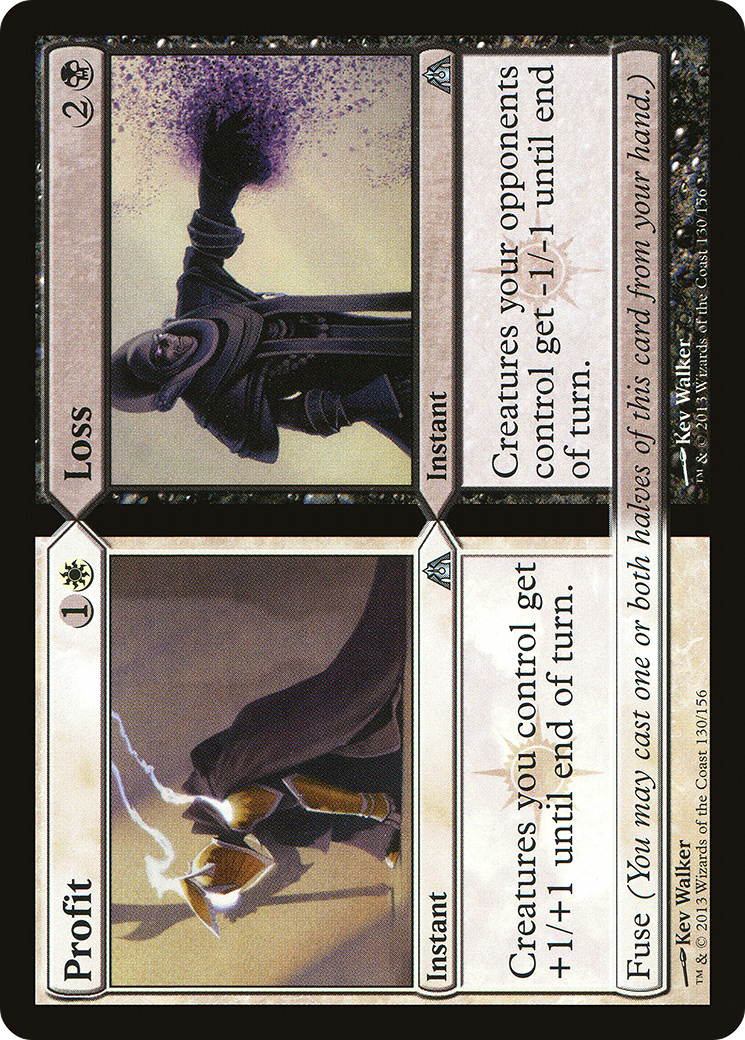
And then there's everything else. The event kit has to be shipped cross country to each new event.For a traditional Grand Prix, the event kit filled about an entire semi-truck. It took 50 to 200 person-hours to load and unload it each event. TOs would have to either rent the hall a day early to give us time to set everything upLuckily convention centers often offer discounted or free rates for setup/teardown days., or pay people extra to come in at 3 in the morning. You'll need 10+ computers and tablets event registration, scorekeeping, and end-of-round. You'll need a high quality projector and screen for the round clock.If you forget to bring one, the Atlantic City convention center will be happy to lend you a TV for $850. Banners and prize/schedule boards have to be designed and printed anew for each event. Payment processing fees take a few percentage points from every transaction. Many things need to be insured. Etc.
Don't forget that much of the preparation for large events is happening 6-18 months in advance. A typical Grand Prix might require a deposit a year before the event, which doesn't pay out until after the event is actually run. This can easily require a float of several million dollars that the TO has to just have lying around. The opportunity cost of not being able to spend that money elsewhere is significant, so it's not enough for a large event to break even; the TO has to profit at least as much as they could have by investing that money into something else.The stock market, for example, averages about 10% per year. So if a TO has to spend $400,000 per event a year in advance, they need to expect to profit at least $40,000 from that event in order for it to make any sense to run it.
So where is all this money going to come from? It can't come from entry fees; Competitive Magic players are notoriously value-obsessed and will riot if most of their entry fees don't go into the prize pool. Casual and commander players are a bit more willing to pay for an experience without worrying about prizes, but even they can't support something like this alone.
The rest of the money comes from two places: Wizards subsidies and card vendors.And Tigtone sponsorships. The details depend on the exact event, but Wizards will often provide all of the prize money for large events like Grand Prix and Regional Championships. Wizards also provides product at cheaper prices; in the olden days of Grand Prix, PTOs could often get booster boxes for $50 or less. Nowadays this is less common, but Wizards will provide other things, such uncut sheets and printing rights to oversize cards and other Wizards IP that can then be "sold" via the prize wall.
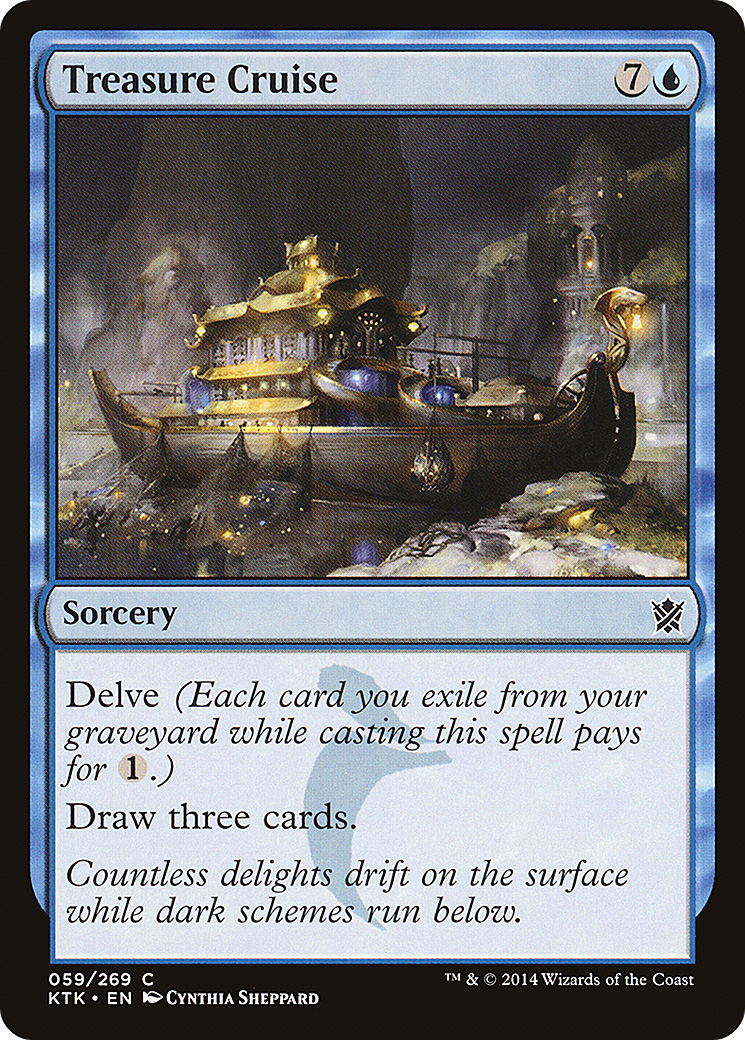
Even that's not enough, so the other big place TOs get money is from card sales. You may notice that most of the organizations that run large tournaments are stores, and that's not a coincidence; the event itself is often a loss leader for the rest of their business. Running a large event series gets you a huge amount of name recognition within the Magic community, and can earn you thousands of new customers for your online storefront.
Large events are also great for vendors at the event itself. Players will dig out old collections to sell when they hear about a convention in their area; cards they would never have sold if they had to go through the trouble of doing it online. And players are often more willing to buy high end cards when they can inspect them in person than having to trust a few pictures over the internet. So vendor booths can be quite lucrativeAt one Grand Prix several years ago, a vendor accidentally lost $10,000 in cash by dropping it on the floor while walking around. When I tried to get it back to them, they didn't seem to even care very much., which can help subsidize the event either directly (the same store that runs the event runs their own vendor booth) or indirectly (the TO charges other vendors anywhere from $5000 to $20000 to have a vendor booth that weekend).This is, by the way, why counterfeits are so harmful to Organized Play. If they become common enough to tank the prices of high end cards, expect many large events to stop existing.
These factors combine to make running large events feasible, but still not exactly lucrative. When CFBE took over running all Grand Prix in 2018, their entire first year of events was run at a lossThough this didn't take into account the profits made by the CFB vendor booth, and CFBE (which is technically a separate company from CFB), probably didn't count the lost revenue they could have gotten from selling an extra vendor booth to someone other than CFB. So this comment is likely a little misleading, but it still makes the point that large events have to depend heavily on vendors in order to exist., with the plan being to make it back in future years.Covid changed the plan.
How about small tournaments?
Local events also struggle with money. Monthly rent for a retail space will be $2000-$8000 for most stores, and they have to pay their employees as well. Board games don't sell very quickly, so running an LGS is quite challenging on its own. Asking a store to run an RCQ (or even FNM) is asking them to spend a significant portion of their floor space and employee time on something that's going to make them close to $0.
Wizards subsidies to LGSs are limited to things like promos and secret lairs. Finding enough money at an RCQ to pay even a single judge can be a challenge. Standard pay for an RCQ head judge is around $200. 20 players * $30 entry fees = $600, and most of that needs to go back into the prize pool. (It'll also cost something to buy the RCQ kit and get permission to run it in the first place. Dreamhack, for all RCQs in the US, charges $50. F2F, for Canadian RCQs, charges $74.) You can try paying out in prize support, but that will upset some players. Selling snacks is a good way to turn a profit, since Magic players get hungry when they're stuck in one place for 8 hours, but there are only so many snacks people will buy. The store is also losing all the table space that could have gone to more profitable events or more product shelves. As a result, many LGSs simply don't run RCQs, or run them at a loss just to appease the community.
The judge side of things
Magic Judges hold themselves to very high standards compared to other trading card games. On average it probably takes about 50 hours of training to become an L1 judge, 300 hours to become an L2, and 5000 hours to become an L3. (Jon Goud, an L3 from Canada, is a lawyer and says that passing his L3 panel took more work than passing the bar exam.)
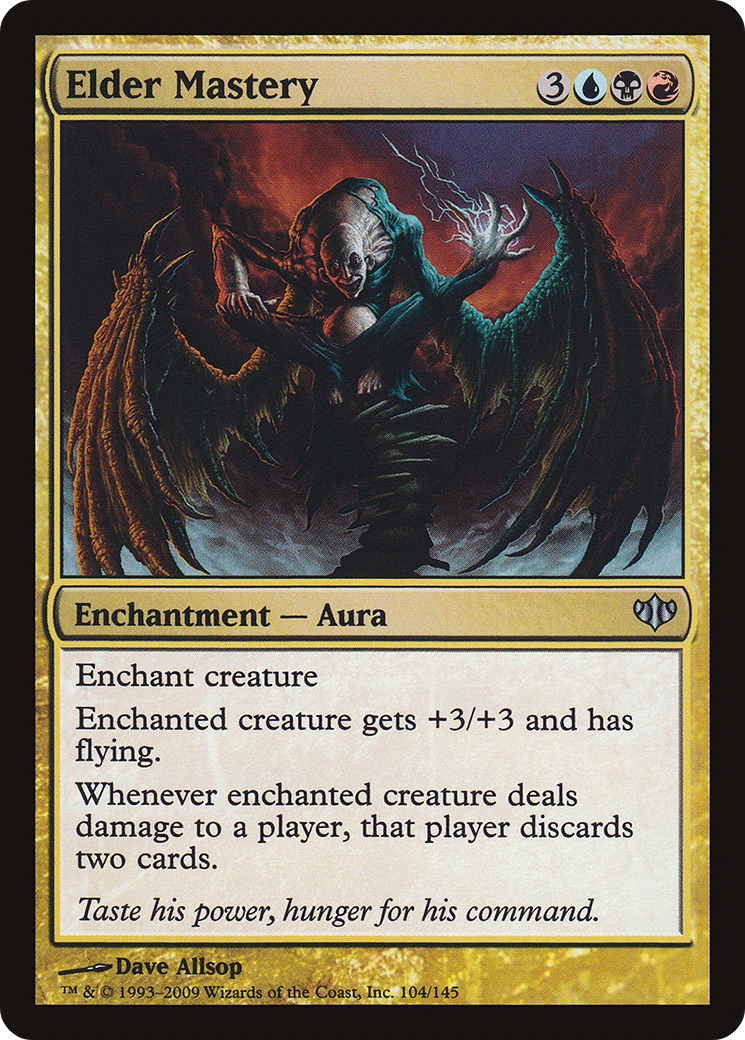
High level Magic judging is skilled labor, and compared to other jobs requiring the same skills, the rate for large events seem kinda low; $200 for 10 hours of work is only $20 an hour. Then you factor in travel. For any large event, local judges aren't enough, and judges have to fly or drive in. That's a day of traveling there, a day of traveling home, a hotel room, and a plane ticket. Subtracting the monetary costs of travel and counting travel time as work time, we're working for anywhere from $0-$10 an hour. It's not uncommon for even experienced judges to end up taking a loss.
(Judges are paid by the tournament organizer. That's Wizards of the Coast for Pro Tours and Worlds, and a different company for most other large events. At Regular REL LGS-level events like FNM, often the judges are unpaid, potentially getting something small in return like free snacks or free entry.)
We do get a Wizards subsidy in the form of judge promos. These have been given out in various ways over the years; currently we get them for free for attending conferences. But this is not incentive-compatible; it's easy for a judge to certify and then do nothing useful, just collecting promos at all the conferences in their area. Conversely, the most active judges often don't have time to attend conferences, and if they attend lots of conferences, they get accused of "foil farming" and incur repetitional penalties.The actual "foil farmers" are people who just sit in the back and don't participate, so they're largely ignored and there aren't many complaints about them.
But promos are inherently limited; judges always demand more promos, but of course the more that are printed, the less they're worth, so this doesn't really help. What would be better is promos of more desirable cards or more different cards as promos, but now you're asking Wizards to give up more of their card equity in order to send it to the judge program.
There are also a lot of legal and logistical restrictions on how they can be given out. Promos cannot be given out in any way that implies they're compensation for work, which is why they're no longer used to subsidize events, and aren't used to reward people for project work that benefits the community. Conferences avoid these problems, and also the difficulties of shipping. Judges love to demand that promos are shipped directly to their doorstep, but clearly none of them have actually tried shipping things worldwide before.
To provide an example of that, I ran a large online judge conference during the heights of Covid. 494 people from around the world needed to receive foils. This cost upwards of $500, involved the help of multiple volunteers in various countries to act as shipping and distribution hubs, and took months to resolve all the issues with returned and lost packages. When Judge Academy and Wizards used to ship out promos directly to judges, they had it far worse; you would not believe how common it was to get a message like "hey, I didn't know I was supposed to get promos 6 months ago; the address on my profile is wrong, can you send them to my new address?". There's a reason they don't do that anymore.
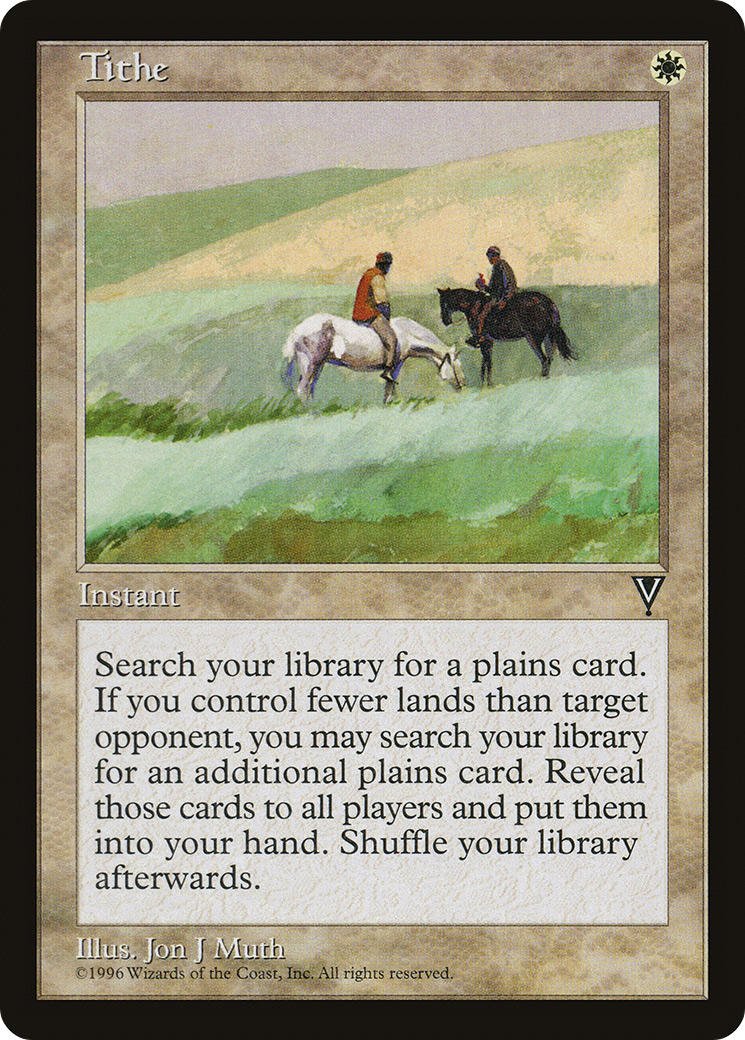
The last financial factor is that judges have to pay $75 per year as their membership dues to Judge Academy, but this is negligible compared to the amounts of money involved in conference promos and event payment. ($75 a year is $6.25 per month.) Attending even a single conference will usually give out more than $75 in promos, and if you're trying it's easy to attend way more than one conference per year. For judges who can't afford the up-front payment, many other judges have offered to give out 1-year loans or prebuy conference promos.I am one of them. If you need a loan, just let me know. So this isn't actually a relevant factor; it's just a convenient excuse used by the malcontents who would have found something else to complain about anyway.
(Former L3 Nicholas Sabin has a great article that goes into a bit more detail on the history of judge payment and why things are the way they are now.)
Long story short, there simply isn't anyone who values what judges do highly enough to offer enough money to make judging a serious source of income.
Players
Players have all the same travel and lodging costs as judges do, with the additional downside that it's a negative-sum game and they only get paid if they're significantly better than the other players who attended.As my water-skiing instructor once told our class, "I get paid to do what you guys pay to do". Many judges just enjoy interacting with Magic in general, and choose to judge rather than play because it's better financially. So it's understandable why, if a player has paid $400 all told to come to and enter a Grand Prix, they'd be annoyed if their expected prize payout is only $40.
Most players are aware that they're likely to lose money at any given Magic tournament, and they're still willing to enter because they enjoy the competition. But there are limits. When you go 6-3 in a tournament; significantly better than average; and still don't even make back your entry fee, you start to wonder whether this is really sustainable.
Let's all blame Judge Academy!
Judge Academy's primary source of revenue is judge dues. $75 * ~4000 judges = $300,000 a year. They supplement this income with the sale of judge merch boxes, which, very optimistically, might get them another $100,000 a year.
We don't know exactly what they spend it on, since they don't publish this information.At one of the Q&A sessions when JAC was first getting started, someone asked whether they would publish their books, and the owner said "No, if we're going to be a for-profit company, we're going to run it as a for-profit company". They declined to provide an actual answer as to why. Someone followed up with "Would you let a third-party audit your books?", and the response was something like "Hmm, maybe, that's interesting.". As far as I'm aware no third-party audit ever occurred.
We know that they don't spend much on web dev, because their website is terrible bordering on nonfunctional, and also their web development company was chosen to be as cheap as possible. They don't spend it on a physical office space; they used to share the offices of Cascade Games, and now I think they're entirely remote, so no physical office. (Not sure about that though.) It's possible that they spend a lot of money on legal fees; As one L3 put it, "Judge Academy is a company that takes our $75 a year and gives it to lawyers to tell us all the things we can't do". (Turns out trying to rigorously follow all the laws in 50+ countries is kinda challenging.) However they tend to automatically no-sir anything that seems like it might kinda potentially be illegal, even when there's probably a legal way to do it, so maybe they try to avoid legal fees by just preemptivly banning themselves from doing anything interesting.
We do know that a lot of it goes to paying judges to keep the company running; approve conferences, ship judge promos, keep the test content updated, etc. They currently have 5ish employees who are all working part-time. Judge Academy is, as far as we can tell from the outside at least, a skeleton company; the only thing it really does is keep itself in existence, and very rarely can someone spare a few hours of effort towards trying to actually make something better.
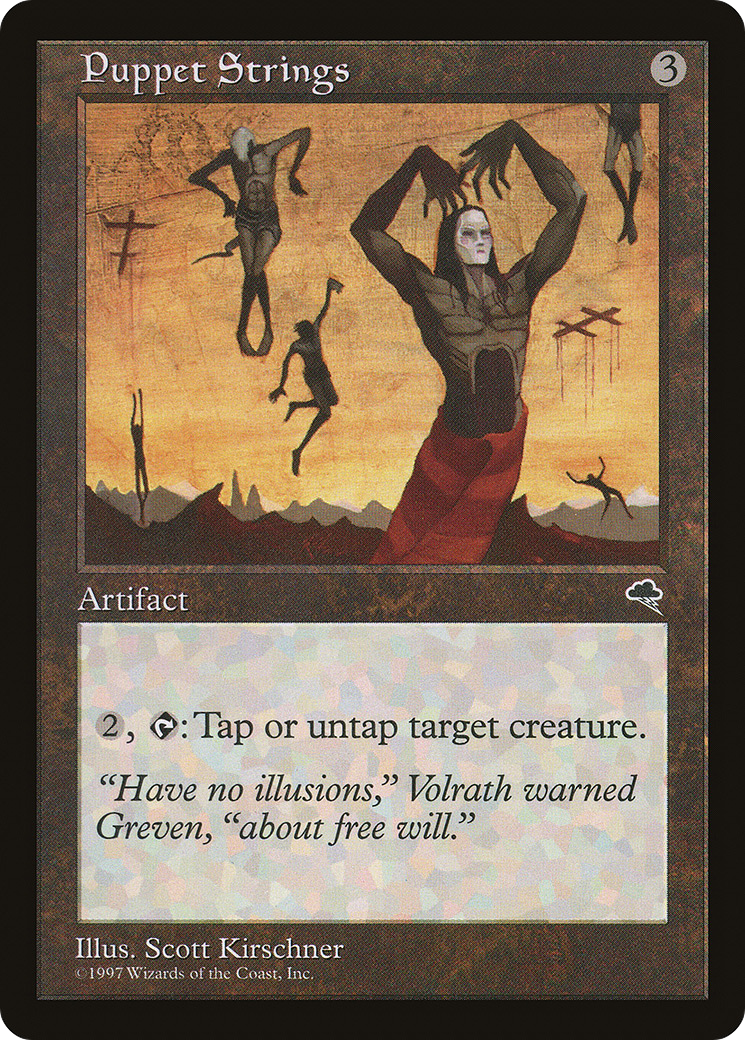
Judge Academy does not print the promos, nor choose what cards they are. Wizards sells a limited number of promos to Judge Academy for a few cents on the dollar, and Judge Academy then has to give out those promos in return for money, in ways that that, legally, don't count as "selling" them. This is why promos are either a "gift" available to judges who have paid their dues, or part of a suspiciously expensive merch box that also contains many other things.
Legally, Judge Academy is an entirely separate company from Wizards. They're staffed by completely different people and have little organizational overlap or communication. Financially however, they are completely dependent on Wizards. They only get the support that Wizards gives them, and this could stop at any time.This is why Judge Academy will never publicly disagree with or push back against Wizards in any way, nor facilitate anyone else doing so. In their series of video interviews with judges from around the world, there was one rule: You may not say anything critical of Wizards of the Coast. If Wizards decides they no longer want to sell promos to Judge Academy, very few judges will want to continue paying their dues, and more likely than not Judge Academy immediately collapses.
Let's all blame Wizards!
Wizards of the Coast would like to make as much money as they can, which means giving as many players as possible what they want so that those players give Wizards their money. Unfortunately for us, the vast majority of potential Magic customers have no interest in Organized Play. Kitchen table and Arena players easily outnumber tournament grinders by 50 to 1; probably much more.Again, see Nick Sabin's article for more details. So Wizards decisions are primarily focused on satisfying those players, and Organized Play is an afterthought.
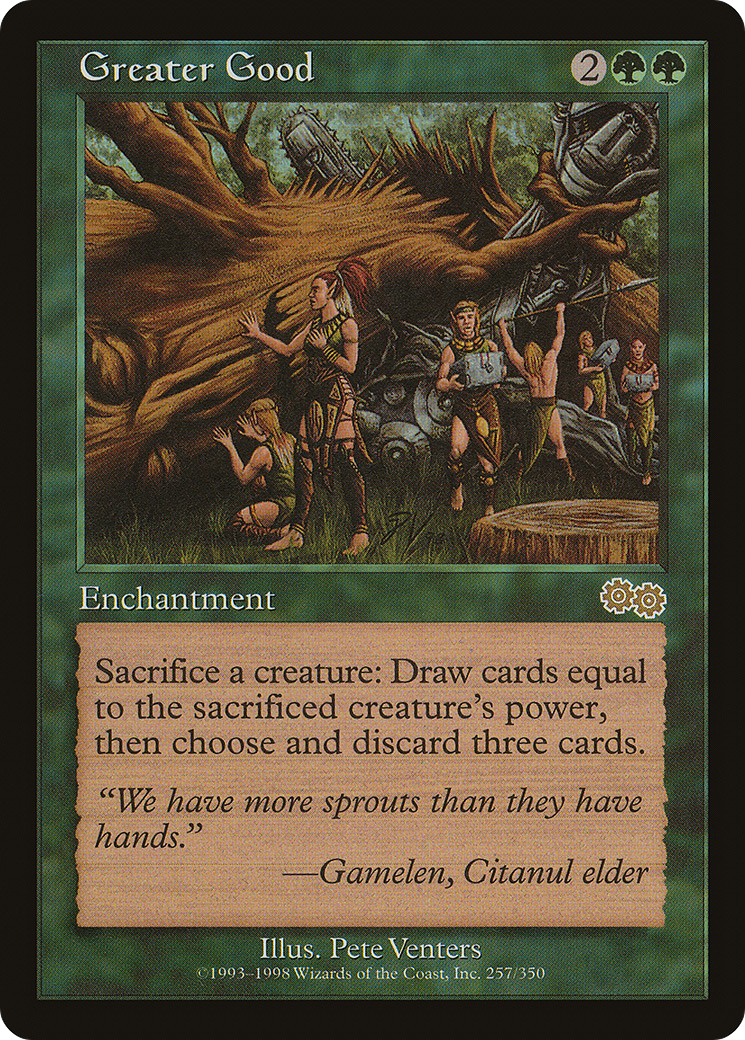
This is why Commandfests and Command Zones have started replacing Competitive Magic events, and why more and more sets are being designed for Commander rather than Standard/Pioneer/Modern/Legacy. There are simply more commander players, and they're willing to pay more money for their hobby, so of course they're the people Wizards and TOs focus on.
(They're not necessarily willing to pay more money overall, and in fact probably aren't. But tournament grinders send most of their money to airlines, gas stations, and hotels; not Wizards. And any money that they do spend on actual Magic entry fees, they're trying to win back in prizes. When a commander player thinks about spending $100 on a weekend of Magic, they're buying an experience; as long as they had fun, they don't mind if the prizes don't have a high monetary value.The real TO profit is the friends players made along the way.)
Moreover, the most enfranchised Magic players and judges have demonstrated a propensity to bite the hand that feeds them. The two lawsuits that judges brought against Wizards, combined with incessant complaining from players about every change Wizards makes, don't give Wizards much of an incentive to keep trying to build up this part of the community.
Wizards could of course afford to better support Organized Play, and it would probably still be a good business decision to do so. (Even if it wouldn't make them a lot of money, some money is still more than zero.) This is where the second problem comes in; Wizards of the Coast is an extremely bureaucratic company, bogged down in red tape and poor organizational structure. They make their profit entirely by riding the coattails of two incredibly popular and long-lasting IPs, and the lack of competition means there's little top-down incentive to streamline the company.One of the clearest examples of this is their chronic inability to update their website. (Gatherer, the Official database for canonical card text, has been broken and unreliable for more than 10 years.) Another is their tournament documents; their own "Comprehensive" rules document is horribly broken and frequently contradicted by their own employees. The Infraction Procedure Guide has not been updated in more than 2 years, and judges simply have to make up policy to handle new mechanics printed since then. No single employee can simply choose to fix things; any change to these documents has to go through a lengthy review and editing process which all but guarantees that changes don't get made in any reasonable amount of time, or at all.
Wizards as an entity is not uncaring, just dysfunctional and incompetent. Individual employees may realize problems and know exactly how to fix them, but none actually have the ability to do so, and it's not worth overhauling the entire company just to eke out a few more percentage points from a niche part of the ecosystem.
Have things gotten worse over time?
Players and judges both frequently say that things were better in the past and have gotten worse recently. Is this a real trend.
First off, there's inflation. An event that cost $30 in 1993 would cost $45 in 2010 and $63 in 2023. A booster pack that cost $2.50 in 1993 would cost $5.29 in 2023. People tend to forget that inflation exists when remembering past prices, and don't realize that there's been no actual increase in the cost in labor; it's like how Yugioh cards all have powers and toughnesses like 1500/2000, but are no more powerful within the context of that game than a 2/3 in Magic.
How do real prices compare to that? MSRP for a booster pack in 1994 was $2.45. In 2004 it was $3.69, and in 2014 it was $3.99. Wizards stopped using MSRP in 2019, but draft booster packs in 2023 are usually around $3-$4 each. So booster packs have actually gotten cheaper over time.
How about events? Data on these is a little harder to find, but here are some examples I was able to dig up:All prices converted to USD, not adjusted for inflation. Judge pay is often available in store credit instead of cash with some percentage increase; I ignored that. I would like to fill in the gaps in this list, so please let me know if you have any similar data for older events.
Grand Prix
Entry fee
Prize pool per capita
Judge compensation
Amsterdam 1997 (standard)
?
$91
?
Seattle 2000 (Extended)
$25
? (296 players)
?
New Orleans 2001 (limited)
?
$40
$20 per day, a free hotel room, and 1 box for the whole weekend.
Turin 2006 (limited)
?
? (656 players)
1 box per day for L1s, 1.5 boxes per day for L2s, 2 boxes per day for L3+. Some judges could have their travel and/or hotel costs covered. Unknown food stipend.
San Francisco 2007 (block constructed)
?
$45
?
Philadelphia 2012 (limited)
?
? (1978 players)
1 booster box per day, plus some unspecified judge foils. There were also free hotel rooms for some (but not all) judges. L3s got an extra 18 booster packs
Toronto 2012
$46
$29
1 box per day, 2 free nights of hotel room, an unspecified meal stipend, and unspecified judge promos. L3s received "additional compensation in the form of specialized product".
Orlando 2014 (limited)
$40
? (2277)
A box per level per day, capped at 3 boxes per day. A pack of judge promos, a playmat, a pin set, a water bottle, 1 month of SCG premium, and two SCG judge tokens for the weekend. L3s also got an SCG judge jacket. Leads had their travel costs covered up to $500.
Ottawa 2014 (limited)
$44
? (1345)
1 box per level per day, getting an extra 25% if the main event has 1500-1799 players, and an extra 50% if it's 1800+. Judges also got $20 per day, and a pack of judge promos for the weekend. Some (not all) judges got a free hotel room.
Detroit 2015 (team limited)
?
? (2040 players)
L1s was 1 booster box and $50 per day, for L2s was $150 and 2 boxes per day, and for L3s was $300 and 3 boxes per day. Each judge also got 5 different playmats.
Vancouver 2017 (modern)
$76
? (1548 players)
L1s: $38 and 1 box per day. L2s: $210 and 1 box per day. L3s: $306 and 1 box per day. GPHJs: $401 and 1 box per day. L2+ judges traveling more than 2250m got an extra booster box, and those traveling more than 4500km got an extra 3 booster boxes. All judges got a playmat.
Toronto 2018 (modern)
$72
? (1679 players)
$240 and 1 box per day. Lead was $360 and 2 boxes per day. All judges got a playmat for the weekend.
Reno 2019 (limited)
?
$52
$275 per day (or $125 + 2 booster boxes). Judge leads got $433 per day, or $358 and 1 booster box
Pro Tour
Entry fee
Prize pool per capita
Judge compensation
New York 1996
$50
$126
?
Los Angeles 2005
?
$589
?
Seattle 2012
?
$610
?
Richmond 2018
$0
$543 and 12 booster packs
?
Barcelona 2023
?
$1866
$350 per day ($400 for team leads), plus a travel sponsorship of $600 for the weekend for judges coming from Europe, and $1000 for those coming from North America.
(Pro tours used to come with a free flight for every entrant, starting around 2000. This was later changed to only people who had made Gold in the pro player's club, and then was ended entirely in 2019.)
Misc events
Entry fee
Prize pool per capita
Judge compensation
Eternal Weekend 2018
$125
?
$200 per day. ($275 for leads.)
Not technically a Grand Prix Vegas 2021
?
?
$425 per day. ($600 per day for leads.)
Commandfest Richmond 2022
N/A
N/A
$225 per day. ($275 for lead, $125 for partial shift.)
Eternal Weekend 2022
?
?
$250 per day. ($400 per day for leads.) 1 playmat for everyone, another playmat for anyone staffed for at least two days.
RC Toronto 2022
$52
?
$13 an hour, $19.50 an hour after the first 8 hours per day. ($200 per day for leads.)
NRG Chicagoland 2023
?
?
$225. ($250 for lead. Extra $50 if you're accepted for an extended shift.)
RC Dallas 2023
$0
$111
$250 per day. Judge leads got $350 per day
RC Toronto 2023
$24
?
$186 per day. ($298 for HJs and sides lead, $238 for other team leads.)
(There's a lot of missing info here; if you know any of the missing numbers, please let me know so I can add it in.)
You can see an increase in entry fees around the end of 2014; this was when WOTC stopped subsidizing judge pay with packs of judge promos due to the judge lawsuit. A comment from a former L5 judge:
The #1 factor leading to price increases was when Wizards had to stop supporting the judge staff with foils; that decision was announced at GP New Jersey, Nov 13-16 2014. I remember during the meeting with WotC, PTOs, and L4+ judges the PTOs were very concerned about having to raise prices to pay judges; I pointed out that people were used to spending well over $100 PER DAY at theme parks - it was time to make the experience more like a destination event, a festival atmosphere.
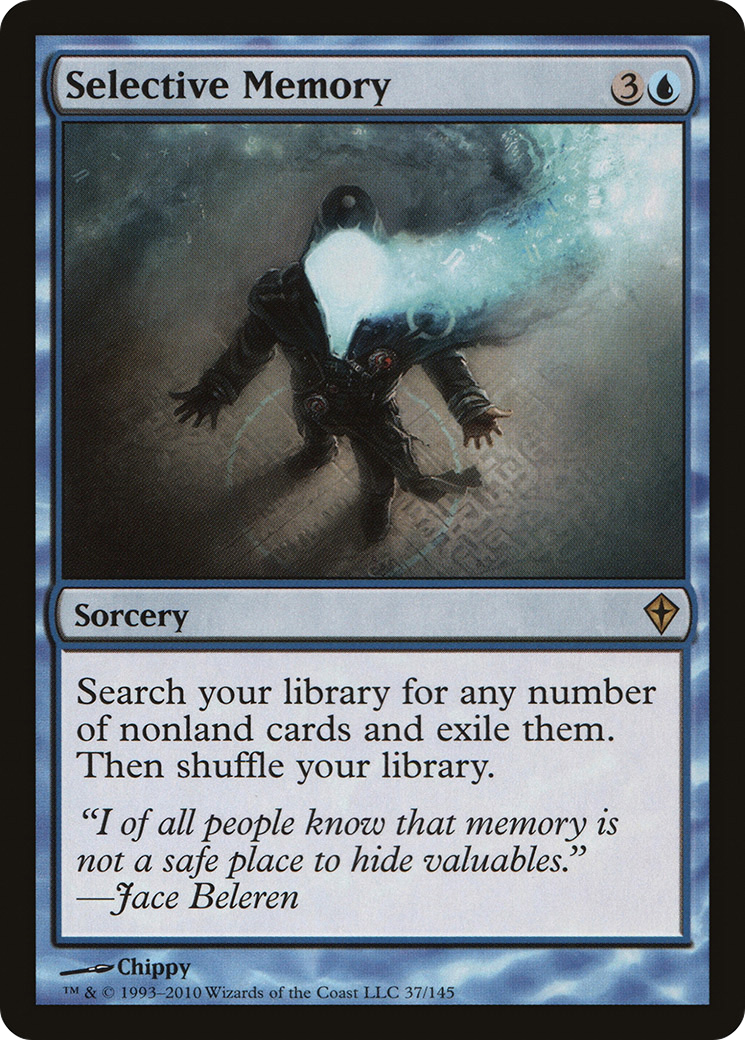
Overall though, it doesn't really seem like things have gotten that much worse. There's variance, and people complain whenever there's an outlier event that costs more than other events that year, but there's no strong downwards trend line. Entry fees have gone up a bit over time, but so have prize pools. Judge pay got a lot better over the early years, then got a bit worse post Covid, but it's still a lot higher than it was in the early 2000s. Long-time judges love to talk about how TOs used to hire extra judges just for community-building and mentorship, but the same judges also tell stories about how they once had to run an entire 200 player PTQ on their own. Perhaps that was just a high-variance time period.
So I think much of this is rosy retrospection. We tend to remember the good things about the past and forget the bad. Players think back to the events at which they had the most fun, forgetting how much they cost at the time and how much worse the production quality of the event was. Judges remember when we got more support from Wizards, forgetting that we didn't get any cash payments, had little to no training materials, and Wizards would sometimes ban judges on a whim.
None of this means the current system doesn't have problems, but I don't think it's accurate to say that Organized Play is dying or was significantly better in the past.
Making things better
I don't have a deep enough understanding of all the factors at play to be confident that any particular attempt at improvement will actually work, but here are some suggestions:
Players: Be more willing to pay for a good time. I know it sucks to feel like you lose $30 every time you attend an RCQ, but if you recontextualize that as the price you paid for a full day of entertainment, it's actually quite cheap. Just compare it to the price to go see a movie, attend a major sporting event, or any other leisure activity.
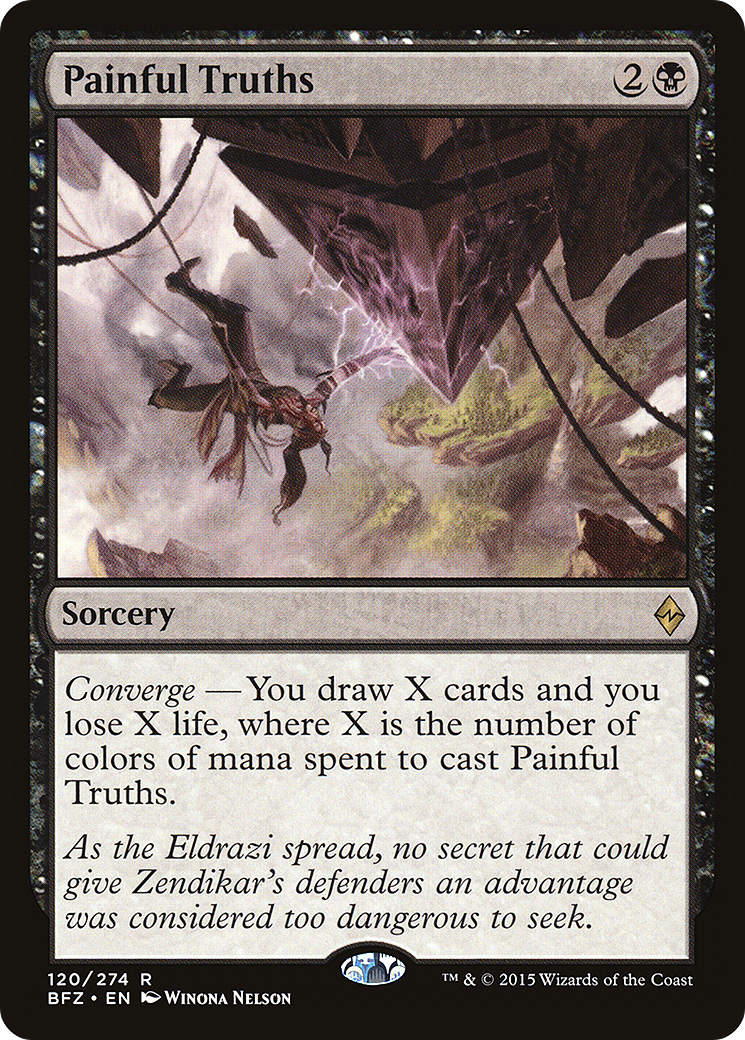
Competitive Magic lets you have fun, compete in an intellectual challenge, learn new things, meet new friends, and reconnect with old ones. If that's worth something to you, then treat it as such. As Patrick Sullivan said, if other people don't have any incentive to give you the things you want, you have only yourself (and those around you) to blame.
Same goes for things other than entry fees. If you enjoy watching high-level Magic, be willing to pay for it so that TOs can justify the costs of having coverage. If you find it useful to have an LGS where you can meet other players and playtest for upcoming events, maybe offer to pay a table fee so the store can justify devoting that space to tables rather than more product shelves.
And be selective. Giving Wizards and tournament organizers feedback on what you don't like is great, but if every choice they could make incurs an equal number of complaints, then you're not actually incentivizing anything in particular. When a TO runs a good event, tell them that. Share how much fun you had on social media. Say what you liked and what they should do again. Be willing to pay extra for a store that runs a smooth event, and refuse to pay if a store has been running low quality events.Is the difference between an RCQ with no judge and an RCQ with a competent L2 worth anything to you? Because it's going to cost the store around $200. Reward the behavior you want to see, and you'll see more of it.
Judges: Come to terms with the fact that, just like players entering Competitive events, this is something we do for fun while trying to avoid spending too much money; not a serious source of income. You aren't owed free stuff just for existing, and you don't get to decide how much other people value the things you're offering them. If you don't find judging to be worth your time, then don't do it. If you choose to do it anyway, then clearly that's because the experience itself is worth something to you.
Tournament organizers: Try being a little more transparent. I know that standard practice for large businesses is "never say anything, ever, unless it's some completely meaningless and unhelpful statement that the PR department spent 3 weeks crafting", but consider just being better than that? Players and judges get upset with you because they don't understand why you're making the decisions you are, and they feel like their questions and complaints are all ignored. Take a look at the AMA that CFBE ran in 2018. They were actually willing to share useful information about their business, and on the whole it went quite well; people appreciated the transparency and it helped them understand why things were the way they were.
And be more willing to put up with some short-term complaints in favor of long-term sustainability. There are some people who are going to get upset regardless of whether what you're doing is reasonable, so just ignore them and make decisions that benefit the rest of the community and can support a tournament series long-term. If you're getting enough judge applications at your current compensation rate to run a smooth event, there's no need to raise it just because a few of them are complaining on social media about a position that they voluntarily chose to accept. If you're getting enough players to fill your space at your current entry fee, there's no need to lower it just because a few players complain about it. Use the money to deliver a quality experience instead.
Everyone: We all would like the system to get better, but there's no simple fix. Try and understand systems before attempting to change them. Good intentions, sadly, do not guarantee good results. We want to consider what incentives each party has, and modify our own behavior to incentivize others to behave the way we want them to. The judges who sued WOTC over labor law legitimately wanted to make the judge program better. They just didn't realize that the most rational response from Wizards would be "Oh no, we might be legally liable for a thing that doesn't make us all that much money! Better lawyer up and make sure nothing like this happens ever again."
from Hacker News https://ift.tt/JNhVnFk
No comments:
Post a Comment
Note: Only a member of this blog may post a comment.